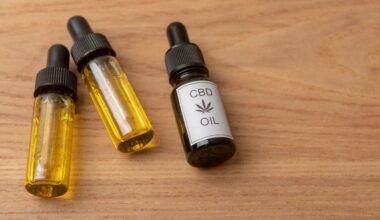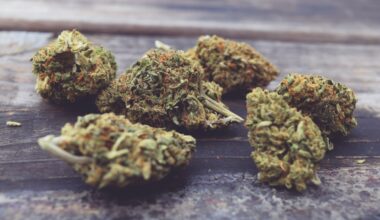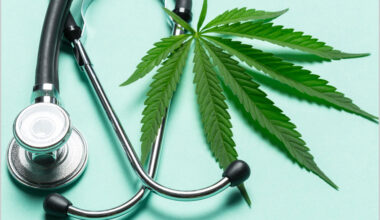CBD and THC are the two most talked-about cannabinoids found in cannabis. But what is Delta-8 THC, and how does it differ from CBD? In this article, we’ll go over the differences between CBD and Delta-8 THC and their similarities. We’ll also look at their legal status to see if they’re federally legal or available only in states with legal cannabis. Finally, we’ll discuss how you can use both of these cannabinoids for your health.
What’s the Difference Between CBD and Delta-8?
There are dozens of cannabinoids, and they all interact with the body’s endocannabinoid system. This system is responsible for regulating appetite and mood and pain sensation, memory, and sleep. It’s also the same system that marijuana activates when high or stoned. The difference between CBD and delta-8 is that neither compound causes a euphoric high like THC does (although delta-8 can sometimes make people feel relaxed).
Instead, both compounds have been found to help treat various diseases, including diabetes and cancer, without causing any noticeable side effects—which makes them popular with patients who don’t want to experience a “high” from their medication.
Legal Status
CBD is legal in all 50 states, while Delta-8 THC is legal in all 50 states.
How to Use Delta-8 THC and CBD
Delta-8 THC and CBD are potent compounds that can be used for various things. Here’s how to use them:
- Separately. If you’re new to cannabis or looking for a way to explore the effects of either compound without investing in another product, consider finding pure delta-8 THC or CBD extracts and using them by themselves. These products will give you more precise control over your intake than other forms and allow you to experiment with unique effects without having too much on hand at once.
- Together. When used together in small amounts, these compounds act synergistically to enhance one another’s effectiveness while minimizing any adverse side effects. This makes them an excellent option if you want an all-around pleasant experience but aren’t sure which one would suit your needs just yet—or if they both sound appealing but don’t want quite as much potency all at once! For instance: You could take 5mg of delta-8 THC in combination with 10mg of CBD tincture before going out with friends tonight (assuming neither is already present within the particular strain). This way, everyone gets to sample what works best for them without being overwhelmed by their full potential.”
Delta-8 THC Effects vs. CBD Effects
Both CBD and Delta-8 THC are non-psychoactive cannabinoids, meaning they don’t cause a high. They both have anti-inflammatory properties and can be used to treat pain and inflammation and nausea, and vomiting. Because of this similarity in function, it’s essential to understand the differences between the two compounds to make an educated choice about which type of product works best for your needs.
Delta-8 THC is also known as anandamide – or “the bliss molecule” – because it mimics the body’s natural endocannabinoids (like THC) that bind with receptors in our brains and bodies to create feelings of euphoria. However, unlike delta 9 THC (or psychoactive), delta 8 doesn’t give users that same feeling; instead, it seems to work more like CBD by binding with cannabinoid receptors throughout our central nervous system without causing any kind of intoxication whatsoever.
Conclusion
CBD and delta-8 THC are excellent options for treating anxiety, pain, and depression. They are also both legal in all 50 states. So if you’re looking to get some relief from these symptoms, which one should you try first? As with any supplement, it’s best to consult your doctor before deciding. But suppose you’re suffering from pain or anxiety but don’t have time to make an appointment with a doctor. In that case, either CBD oil or delta-8 THC is a safe option that will relieve you without worrying about getting addicted as prescription drugs do! When shopping online, make sure that the product has been tested by an independent lab and contains less than 0% THC (so as not to fall under Schedule I classification).
Medical Disclaimer:
The information provided in these blog posts is intended for general informational and educational purposes only. It is not a substitute for professional medical advice, diagnosis, or treatment. Always seek the advice of your physician or other qualified healthcare provider with any questions you may have regarding a medical condition. The use of any information provided in these blog posts is solely at your own risk. The authors and the website do not recommend or endorse any specific products, treatments, or procedures mentioned. Reliance on any information in these blog posts is solely at your own discretion.






